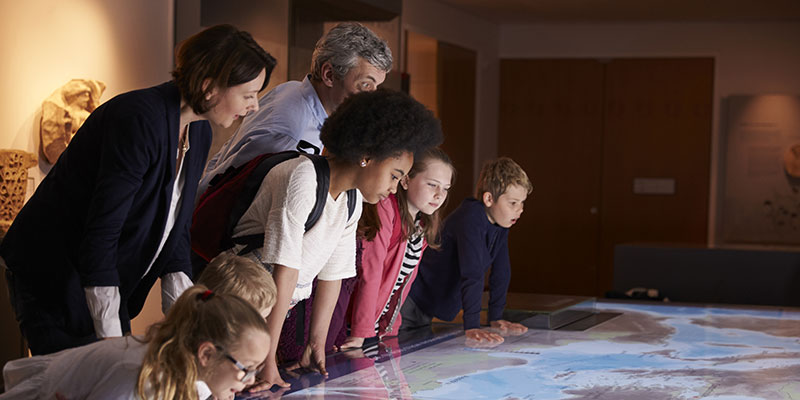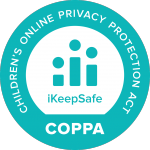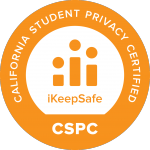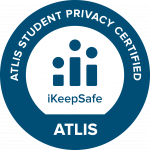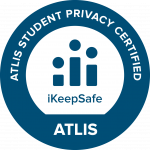There’s always something around the corner for parents and teachers who want to engage their kids in STEAM learning!
Throughout the year, learning institutions celebrate various holidays with events, competitions, and celebrations, but these aren’t your normal holidays. From Pi Day to National Robotics Week, check out these 14 holidays that you can use to foster a love of math, science, and nature in the next generation.
STEAM Holidays for Parents and Teachers
DNA Day
The National Human Genome Research Institute celebrates National DNA Day on April 25: It’s the date that the discovery of the double helix was shared in 1953. Biology teachers can use this day to construct models while parents can discuss DNA with kids and how certain traits are passed down.
International Museum Day
On or around May 18, the International Council of Museums (ICOM) hosts International Museum Day, which can last from one day to an entire week. In 2016, more than 35,000 museums in 145 countries participated, hosting events to bring the general public into their hallowed halls of learning and discovery. Parents should look for special discounts and deals at their local museums and plan educational family outings.
World Oceans Day
If your child is fascinated by everything under the sea, then you can’t miss World Ocean’s Day on June 8. Aquariums and marine centers from around the world host events to teach families to care for ocean ecosystems. Some aquariums couple this day with beach cleanups and other volunteer opportunities to give back while celebrating.
Math Storytelling Day
September 25 is Math Storytelling Day, where students solve math problems by creating art and sharing stories.
“Math is too often stigmatized as just a dry practice of equations. Math Storytelling Day weaves together numbers and words,” the team at Knowre writes. “For students who are more inclined towards English or history class, this holiday encourages them to use their wordsmithing skills in math class.”
In many ways, Math Storytelling today adds the arts aspects to the STEAM acronym.
Programmer’s Day
September 12 is Programmer’s Day because it’s the 256th day of the year. It’s a great time for teachers to introduce programming concepts to students that they will use throughout the year.
“256 is the equivalent to one ‘byte’ of data,” Julie Bort, chief tech correspondent for Business Insider writes. “And 256 is also the highest power of two that is less than 365.”
Parents and kids can celebrate by discussing what programmers actually do and playing programming games, like ShapeTracer, as a family.
Pi Day
March 14 is a popular day in math classes as students and teachers celebrate Pi Day. The calendar falls on 3/14 (while the first three digits of Pi are 3.14) and teachers use the data to make math exciting and engage students in geometry.
Drew Ehrgott, design director at The Leonardo, shared his story of a math teacher bringing in pies for Pi Day. The student who was able to answer all of his Pi-related questions was able to smash a pie in his face at the end of class.
World UFO Day
For an interesting take on Space lessons, celebrate World UFO Day on July 2. Space is still a mystery to us Earthlings, so who knows what could be out there and who has already visited us?
STEM/STEAM Day
If there’s one holiday that parents and teachers should get excited about, it’s National STEM/STEAM Day held yearly on November 8. The team at Pets In the Classroom explains that this holiday is actually a pun. When you take the date “NOV8” and say it out loud, it sounds like the word “innovate.”
The bloggers behind PITC give examples of how teachers can use pet care and biology to interest kids in STEM/STEAM in unexpected ways and make the most out of this holiday.
Week-Long STEAM Holidays and Events
National Engineers Week
From February 18-24, parents and teachers can celebrate National Engineers Week hosted by DiscoverE. The holiday falls in with “Girl Day” on February 25 when discussions about women and the future of girls in engineering are held. Those interested can order kits to make the most of this week and inspire kids to embrace engineering and use critical thinking skills to solve problems.
National Robotics Week
The ninth annual National Robotics Week runs from April 7-15, 2018 and is a time when organizations around the country celebrate STEAM education and robotics development. Events can be any size, and the creators of National Robotics Week have starter kits for people who want to get involved and host events of their own. If there’s not one near you, you could create your own through your local school or library!
National Environmental Education Week
The National Environmental Education Foundation (NEEF) hosts National Environmental Education Week, which typically runs in late April. Around the country, museums, parks, schools, and environmental clubs host activities to emphasize the importance of nature and environmental education. These activities range from family park days to science presentations for adults and kids.
World Space Week
The United Nations declared October 4-10 World Space Week in 1999 to celebrate humankind’s accomplishments in space exploration. Since that first year, World Space Week has grown to exceed 2,700 events globally across 86 nations. Families can visit science museums and local planetariums to show their support for space programs and discover the benefits of exploring the great beyond.
Earth Science Week
Hosted by the American Geosciences Institute, Earth Science Week runs from October 8-14. Teachers can sort through classroom activities based on grade level and subject, while parents and kids can enter video, photography, and essay contests. The theme in 2017 was “Earth and Human Activity,” reflecting on how people impact the natural world around them.
The World Science Festival
The World Science Festival has drawn more than 2.5 million participants since its start in 2008. This week-long festival hosted in New York City in June combines science with artistic performances to encourage curiosity about STEM and creativity in the field. Many of the events are shared or live-streamed, making them great resources for parents and teachers.


